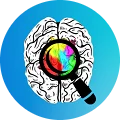Sleep Disorders.
Sleep disorders (or sleep-wake disorders) involve problems with the quality, timing, and amount of sleep, which result in daytime distress and impairment in functioning. Sleep-wake disorders often occur along with medical conditions or other mental health conditions, such as depression, anxiety, or cognitive disorders.
Sleep problems may cause the difficulties people experience in everyday life or they may result from some disturbance common to a psychological disorder. For example, the disordered behavior of persons with borderline personality disorder may be attributed to the genes associated with circadian rhythms.
A brain circuit in the limbic system may be involved with anxiety. We know that this region of the brain is also involved with our dream sleep, which is called rapid eye movement (REM) sleep. This mutual neurobiological connection suggests that anxiety and sleep may be interrelated in important ways, although the exact nature of the relationship is still unknown. Insufficient sleep, for example, can stimulate overeating and may contribute to the epidemic of obesity. Similarly, REM sleep seems related to depression.
Sleep abnormalities are preceding signs of serious clinical depression, which may suggest that sleep problems can help predict who is at risk for later mood disorders.
Sleep-wake disorders are divided into two major categories: dyssomnias and parasomnias.
Dyssomnias involve difficulties in getting enough sleep, problems with sleeping when you want to (not being able to fall asleep until 2 a.m. when you have a 9 a.m. class), and complaints about the quality of sleep, such as not feeling refreshed even though you have slept the whole night.
Parasomnias are characterized by abnormal behavioral or physiological events that occur during sleep, such as nightmares and sleepwalking.
Insomnia Disorder.
Insomnia is one of the most common sleep-wake disorders. You may picture someone with insomnia as being awake all the time. It isn’t possible to go completely without sleep, however. For example, after being awake for one or two nights, a person begins having microsleeps that last several seconds or longer.
In the rare occurrences of fatal familial insomnia (a degenerative brain disorder), total lack of sleep eventually leads to death. Despite the common use of the term insomnia to mean “not sleeping,” it actually applies to a number of complaints. People are considered to have insomnia if they have trouble falling asleep at night (difficulty initiating sleep), if they wake up frequently or too early and can’t go back to sleep (difficulty maintaining sleep), or even if they sleep a reasonable number of hours but are still not rested the next day (nonrestorative sleep).
Diagnostic Criteria for Insomnia Disorder.
A. A predominant complaint of dissatisfaction with sleep quantity or quality associated with one or more of the following symptoms:
1. Difficulty initiating sleep. (In children, this may manifest as difficulty initiating sleep without care giver intervention.)
2. Difficulty maintaining sleep, characterized by frequent awakenings or problems returning to sleep after awakenings. (In children this may manifest as difficulty returning to sleep without caregiver intervention.)
3. Early-morning awakening with inability to return to sleep.
B. The sleep disturbance causes clinically significant distress in social, occupational, educational, academic, behavioral, or other important areas of functioning.
C. The sleep difficulty occurs at least 3 nights per week.
D. The sleep difficulty is present for at least 3 months.
E. The sleep difficulty occurs despite adequate opportunity for sleep.
F. The insomnia is not better explained by and does not occur exclusively during the course of another sleep– wake disorder (e.g., narcolepsy, breathing-related sleep disorder, a circadian rhythm sleep–wake disorder, a parasomnia).
G. The insomnia is not attributable to the physiological effects of a substance (e.g., a drug abuse, a medication).
H. Coexisting mental disorders and medical conditions do not adequately explain the predominant complaint of insomnia.
Specify if:
Episodic: Symptoms last at least 1 month but less than 3 months
Persistent: Symptoms last 3 months or longer
Recurrent: Two (or more) episodes within the space of 1 year.
Causes of Insomnia Disorder.
- Insomnia accompanies many medical and psychological disorders, including pain and physical discomfort, physical inactivity during the day, and respiratory problems.
- Sometimes insomnia is related to problems with the biological clock and its control of temperature.
- Stress. Concerns about work, school, health, finances or family can keep your mind active at night, making it difficult to sleep. Stressful life events or trauma — such as the death or illness of a loved one, divorce, or a job loss — also may lead to insomnia.
- Travel or work schedule. Your circadian rhythms act as an internal clock, guiding such things as your sleep-wake cycle, metabolism and body temperature. Disrupting your body’s circadian rhythms can lead to insomnia. Causes include jet lag from traveling across multiple time zones, working a late or early shift, or frequently changing shifts.
- Poor sleep habits. Poor sleep habits include an irregular bedtime schedule, naps, stimulating activities before bed, an uncomfortable sleep environment, and using your bed for work, eating or watching TV. Computers, TVs, video games, smartphones or other screens just before bed can interfere with your sleep cycle.
- Eating too much late in the evening. Having a light snack before bedtime is OK, but eating too much may cause you to feel physically uncomfortable while lying down. Many people also experience heartburn, a backflow of acid and food from the stomach into the esophagus after eating, which may keep you awake.
Reference,
David H. Barlow, V. Mark Durand. Abnormal Psychology, An Integrative Approach. (7th ed).
Subscribe to Careershodh
Get the latest updates and insights.
Join 17,572 other subscribers!
Niwlikar, B. A. (2022, August 12). Sleep-Wake Disorders: Insomnia Disorder.. Careershodh. https://www.careershodh.com/sleep-wake-disorders-insomnia-disorder/
